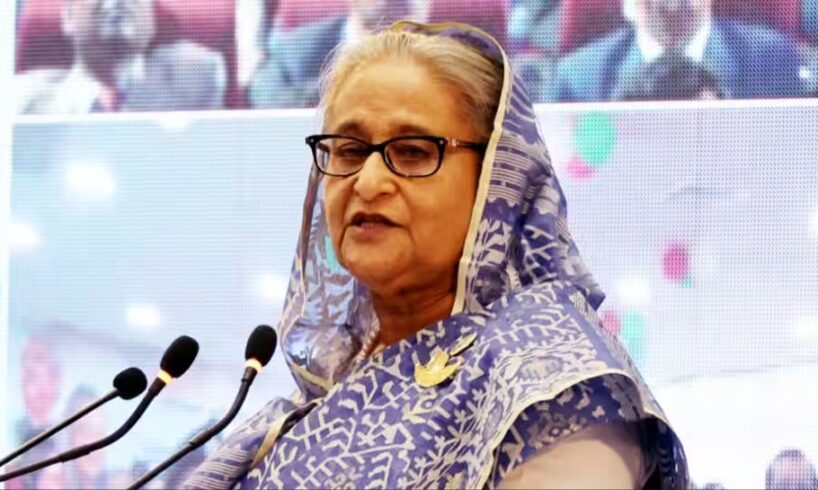
A Bangladesh tribunal court on Monday sentenced former Prime Minister Sheikh Hasina, in exile in India, to death after finding her guilty of committing “crimes against humanity” during the 2024 student uprising. The in-absentia verdict has been welcomed by the Yunus-led interim government but has elicited a measured response from the international community.
The Verdict and Convictions
The death sentence has been passed by the International Crimes Tribunal, marking the culmination of proceedings against the ousted Awami League chief.
Add Zee News as a Preferred Source
Death Sentence: Former Prime Minister Sheikh Hasina was sentenced to death.
Co-Convicts:
The death sentence was also given to former Interior Minister Asaduzzaman Khan Kamal.
Ex-Inspector General of Police Chowdhury Abdullah Al-Mamun was sentenced to five years in prison as he had cooperated and pleaded guilty to the charges.
Judge’s Statement: Judge Golam Mortuza Mozumder said the initial life sentence was upgraded as other charges were added, deciding to “inflict her with only one sentence — that is, a sentence of death.”
Basis of Guilt: Hasina was “found guilty on three counts” that included incitement of violence, order to kill, and failing to prevent atrocities.
Specific Crimes Charged
Hasina and her two assistants were accused of instigating five specific crimes during the uprising last August:
Orchestrating mass killings of protesters in Dhaka.
Firing on civilian crowds with the use of helicopters and drones.
The murder of student activist Abu Sayed.
The incineration of bodies in Ashulia to destroy evidence.
The synchronised killing of the demonstrators in Chankharpul.
National and International Reactions
The verdict drew sharp reactions from the concerned parties and international bodies.
Sheikh Hasina: Denied the charges, describing the verdict as “rigged” and “politically motivated” by a “kangaroo court.”
Yunus Government: Welcomed the ruling, with Chief Advisor Muhammad Yunus saying, “no one, however powerful, is above the law.”
India’s Response: The Ministry of External Affairs noted the verdict thus: “As a close neighbour, India remains committed to the best interests of the people of Bangladesh, including in peace, democracy, inclusion, and stability in that country.”
United Nations: While the ruling constituted “an important moment for victims,” the UN rights office said it “regretted the imposition of the death penalty,” which it opposes in all circumstances.
Extradition Request And Next Steps
Hasina remains in exile in India, and the attention shifts to New Delhi’s response to the extradition plea.
Bangladesh’s Demand: Dhaka officially called upon India to extradite both Sheikh Hasina and Asaduzzaman Khan Kamal, invoking the existing extradition treaty and labeling any grant of asylum as a “grave unfriendly act.”
Property Seizure: The first act by the International Crimes Tribunal will be to confiscate Hasina’s properties that will be taken over by the state.
Appeal Window: Hasina has 30 days to appeal, although this can only happen when she is arrested or voluntarily returns to Bangladesh.
Fugitive Status: If Hasina ignores the summons, she can be declared a fugitive, enabling Dhaka to cancel her passport and escalate its efforts, possibly by issuing an Interpol red notice.
ALSO READ | Top Maoist Leader Madvi Hidma Killed In Police Encounter





